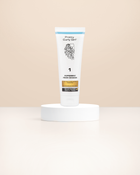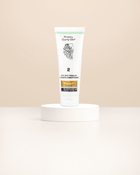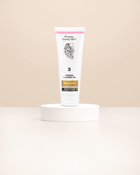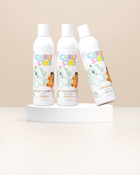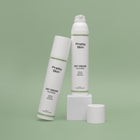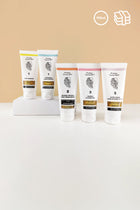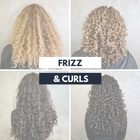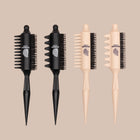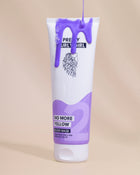Hormones and Curly Hair: What Happens During Menopause, Pregnancy, and Stress?
Yes, hormones can have a major impact on curly hair. Hormonal changes affect not only the hair texture but also the growth, resilience, and overall health of your hair. Many women with curls notice that their hair changes during periods of hormonal fluctuations, such as pregnancy, postpartum, or menopause. Stress, thyroid problems, and testosterone also play a role.
In this blog, you’ll discover how hormones influence your curls, why you might suddenly develop curly hair or lose your curls, and what you can do to keep your curls healthy.
Pregnancy and Postpartum: Changes in Your Curls
During pregnancy, estrogen levels rise, which often makes hair look thicker, shinier, and fuller. This is also true for women with curly hair, who may experience more defined, bouncy curls.
After giving birth, estrogen levels drop rapidly. This can lead to postpartum hair loss and even changes in curl structure. Your curl pattern may become looser, frizzier, or in some cases, more defined.
Curly Hair and Menopause
Many women wonder: what happens to my hair during menopause? As estrogen levels decrease, hair can become drier, thinner, and more brittle. Some women with curls notice that their curls loosen or even disappear completely.
-
Curly hair during menopause may change into a straighter texture.
-
For others, the opposite happens: their hair changes from straight to curly.
-
Lower estrogen also often means less hair growth during menopause, which makes hair appear thinner.
This explains why many women ask: Can you suddenly get curly hair later in life? The answer is yes. Hormonal fluctuations can trigger curls later in life, while in other cases, they can cause curls to disappear.
Thyroid Hormones and Hair
The thyroid plays a crucial role in metabolism and therefore also in hair growth. Both hyperthyroidism (overactive thyroid) and hypothyroidism (underactive thyroid) can cause changes in hair texture.
Curly hair can:
-
lose elasticity,
-
feel drier,
-
or become thinner.
Stress and Cortisol: The Effect on Curls
Stress directly affects hormone balance. High cortisol levels can lead to hair thinning or changes in curl pattern. Your hair may feel limp and less resilient, or you might notice that your curls disappear even if you once had a full head of curls.
Can Curls Disappear or Suddenly Appear Later in Life?
Many women recognize this: your hair suddenly changes. Maybe your hair was straight for years, and now you have suddenly curly hair. The opposite can also happen: curls can disappear due to hormonal changes such as menopause, postpartum, or stress.
To summarize:
-
Can you suddenly get curly hair later in life? Yes, it is possible for your hair to become curly later in life. Hormonal shifts, such as those during pregnancy or menopause, can alter the shape of your hair follicles and change your texture. Aging itself may also influence your curl pattern.
-
Can curls disappear? Yes, curls can fade or lose definition due to factors such as heat and chemical damage, incorrect product use, scalp buildup, or hormonal changes and aging. These influences can weaken the hair’s structure and disrupt its natural curl pattern. The good news is that in many cases the change is not permanent, and curls can be restored with the right curly hair care routine.
How to Keep Your Curls Healthy Despite Hormonal Changes
Maintaining a good hormonal balance plays an important role, but you can also support your curls with proper care:
-
Use hydrating and nourishing products to combat dryness.
-
Alternate with protein-rich products to keep your curls strong and elastic.
-
Avoid harsh shampoos with sulfates and silicones.
With the right routine, your curls can stay healthy, vibrant, and beautifully defined at every stage of life.
Conclusion
Hormones have a significant impact on curly hair. Whether you are pregnant, experiencing stress, or going through menopause, your curls need extra care and attention. Remember that both curls later in life and the disappearance of curls due to hormones are natural changes. With the right products and a consistent routine, you can maintain the natural beauty of your curls.
Be Pretty. Be Curly. Be You.

